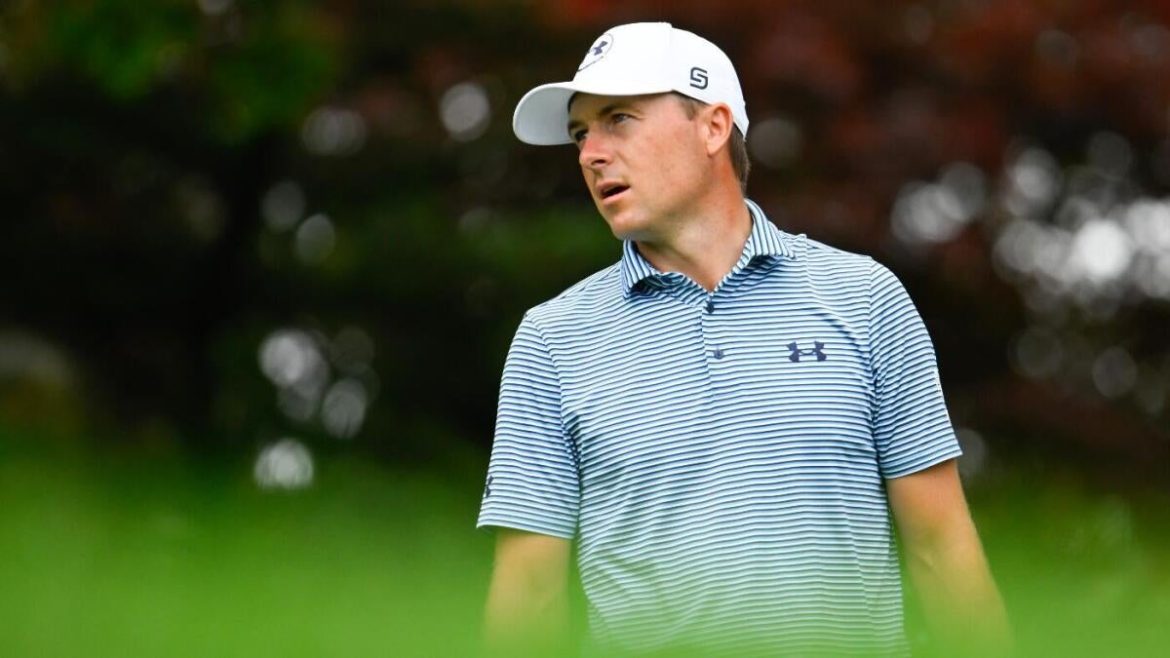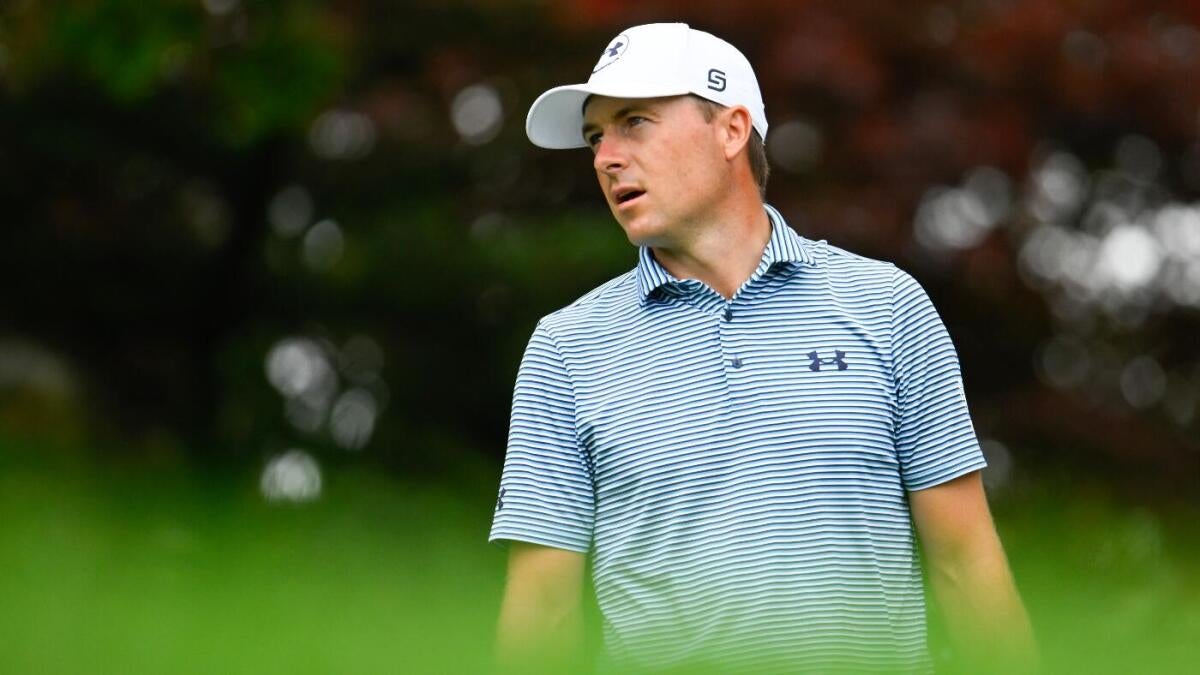An Unexpected Turn: Jordan Spieth’s First Withdrawal and the Rising Trend of Injury on Tour
The world of professional golf thrives on consistency, on the predictable rhythm of tournaments and the enduring presence of its stars. Yet, recent events, particularly surrounding Jordan Spieth’s withdrawal from the 2024 Travelers Championship, highlight a growing fragility within the sport – a vulnerability to injury that is disrupting established narratives and forcing even the most reliable players to recalibrate. Spieth’s decision to withdraw mid-tournament, a first in his 297 PGA Tour starts, wasn’t simply a statistical anomaly; it was a stark illustration of the physical demands placed on golfers and a signal of a potentially concerning trend.
The Unprecedented Withdrawal
For a player renowned for his grit and determination, Jordan Spieth’s withdrawal from the Travelers Championship was a significant departure. The injury, initially reported as a neck issue sustained during warm-up, clearly hampered his performance. He persevered through the first 12 holes, carding a 5-over score, visibly grimacing and exhibiting physical discomfort. However, ultimately, he made the difficult decision to concede the round, marking the first time in nearly three decades of professional play that he had withdrawn from a PGA Tour event. This wasn’t a strategic retreat; it was a forced one, dictated by physical limitations. The fact that this occurred at the final Signature Event of the season adds another layer of significance, emphasizing the impact on his competitive schedule and potential earnings.
A Chorus of Concerns: Injury’s Increasing Grip
Spieth’s situation isn’t isolated. The articles reveal a concerning pattern of injuries impacting prominent golfers. Nelly Korda, a dominant force in the LPGA, has battled neck spasms, forcing her to withdraw from events. Sahith Theegala, a rising star, was also sidelined with a neck injury, opening a spot in the field for another player. Even established veterans like Justin Rose have succumbed to physical setbacks, withdrawing from the Arnold Palmer Invitational with a back injury. Jason Day’s unexplained withdrawal from the Truist Championship further underscores the prevalence of undisclosed health issues.
This surge in reported injuries raises questions about the evolving physical demands of the modern game. Increased swing speeds, intensified training regimens, and the relentless travel schedule all contribute to the strain on players’ bodies. The pressure to maintain peak performance week after week, coupled with the inherent repetitive motions of the golf swing, creates a breeding ground for overuse injuries.
The Impact on Performance and Competition
The consequences of these injuries extend beyond individual players. Withdrawals disrupt tournament fields, altering the competitive landscape and potentially impacting betting odds and fan expectations. The articles referencing PGA Championship predictions and bonus bets highlight the financial implications for those following the sport. Moreover, the absence of key players diminishes the overall quality of competition, robbing fans of the opportunity to witness thrilling head-to-head battles.
The case of Spieth is particularly poignant. He was enjoying a strong season, with four top-10 finishes, and his presence at the Travelers Championship was anticipated. His withdrawal not only affected his own performance but also removed a significant contender from the field. The articles also point to the unpredictable nature of the game, with emphasis on the importance of “hot putters” and low rounds, factors that can be significantly influenced by a player’s physical and mental state.
Beyond the Physical: The Mental Toll
While the focus is often on the physical aspects of injury, the mental toll should not be underestimated. For a player like Spieth, accustomed to playing through discomfort and maintaining a relentless competitive spirit, being forced to withdraw represents a significant psychological setback. The articles don’t explicitly address this, but the very fact that this was his first withdrawal in 297 starts suggests a deep-seated aversion to conceding, making this decision particularly difficult.
The pressure to perform, the fear of falling behind in the FedExCup standings, and the constant scrutiny of the media all contribute to the mental strain on professional golfers. An injury not only disrupts their physical routine but also triggers anxiety and self-doubt, potentially impacting their performance even after they return to the course.
Looking Ahead: A Need for Proactive Measures
The recent spate of injuries serves as a wake-up call for the PGA Tour and its players. A more proactive approach to injury prevention is crucial. This includes prioritizing physical conditioning, incorporating more rest and recovery into training schedules, and providing access to comprehensive medical support.
Furthermore, a greater emphasis on biomechanics and swing analysis could help identify and address potential risk factors before they lead to injury. The tour could also explore ways to reduce the intensity of the schedule, perhaps by limiting the number of events or extending the off-season.
A Defining Moment and a Shifting Landscape
Jordan Spieth’s withdrawal from the Travelers Championship wasn’t just a personal setback; it was a symptom of a larger issue plaguing professional golf. It highlighted the increasing vulnerability of players to injury, the disruptive impact on competition, and the need for a more proactive approach to player health and well-being. As the sport continues to evolve, prioritizing the physical and mental resilience of its athletes will be paramount to ensuring its long-term sustainability and captivating audiences for years to come. The incident serves as a stark reminder that even the most enduring champions are not immune to the physical demands of the game, and that a shift in mindset – one that prioritizes longevity and well-being alongside performance – is urgently needed.





